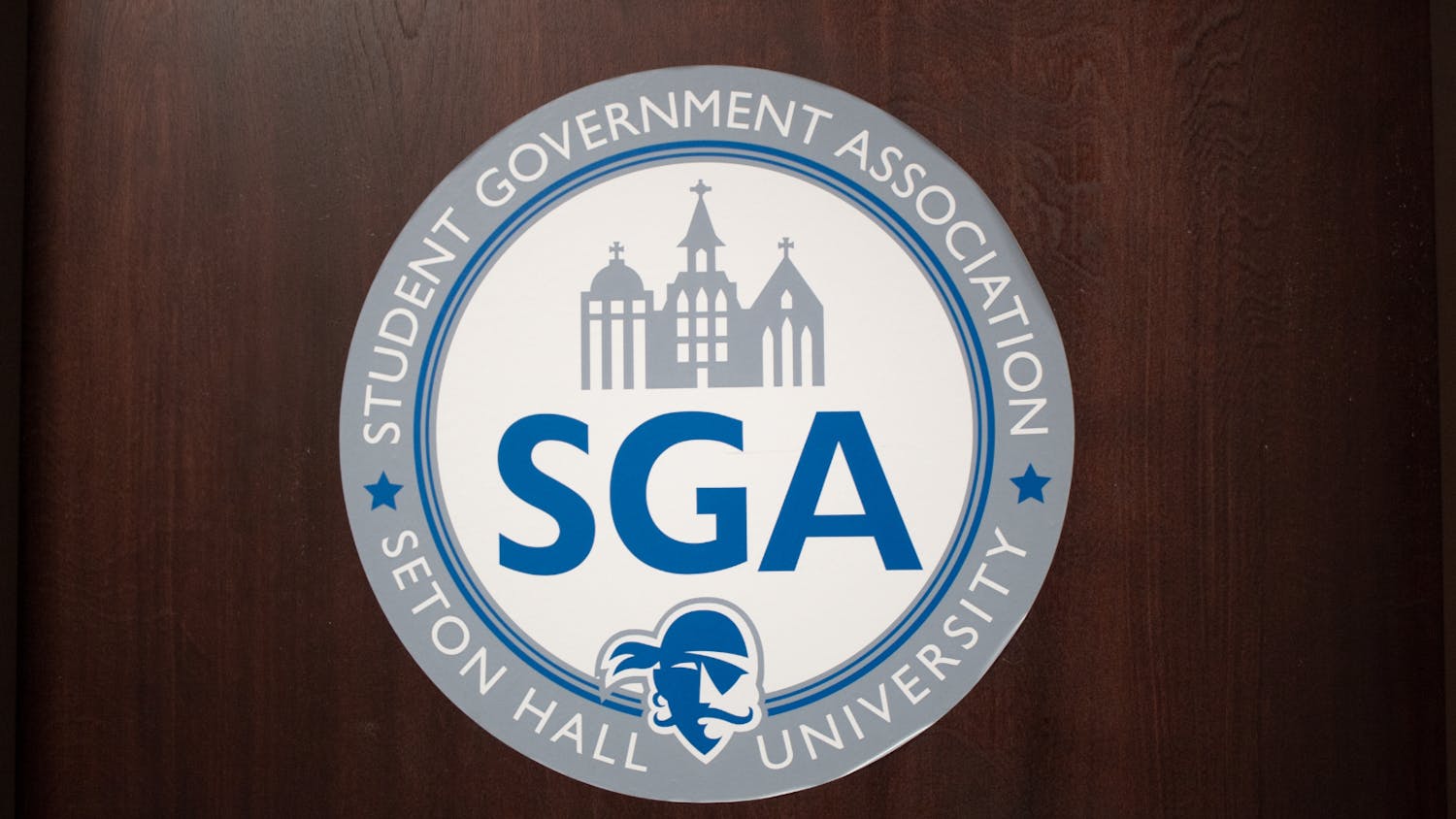Dr. Matthew Pressman, an assistant professor of Journalism in the College of Communication and the Arts, recently had his article about the proposed merger between AT&T and Time Warner published in The Washington Post.
In his piece entitled “The Justice Department’s move to block the AT&T-Time Warner merger sweeps aside centuries of government policy,” Pressman explains that the United States Department of Justice sued AT&T to block its $85 billion bid for Time Warner.
[caption id="attachment_21040" align="aligncenter" width="533"] Dr. Matthew Pressman began teaching at Seton Hall in 2016.
Dr. Matthew Pressman began teaching at Seton Hall in 2016.
Sarah Yenesel/Asst. Photography Editor[/caption]
Pressman writes that “for centuries, government policy has been geared toward nurturing and supporting media companies as they grew more powerful and important.”
Yet, the Founding Fathers believed that the government should subsidize the distribution of newspapers and “wanted the U.S. Postal Service newspapers free of charge,” Pressman writes.
Pressman wrote in an email that he submitted his article over the summer, when the merger was proposed.
“I reached out to the editors of the Washington Post’s ‘Made by History’ section over the summer. They feature articles by historians and other academics that address current events from a historical perspective,” Pressman said.
Pressman wanted to write about the long-standing history of government support of the media business, but he had to revise the article after the merger was rejected.
“I proposed writing about the history of the government’s support for the media business in light of the big proposed merger between AT&T and Time Warner,” he said. “At the time I expected the merger would be approved, so I actually wrote an article based on that assumption, and it was going to be published when news of the merger’s approval broke.”
Pressman and his editor had to alter components of the article as news in Washington changed.
“We were just waiting for that [news] to happen,” Pressman said. “But then it turned out that the government would challenge the merger in court, so I had to rewrite the article to reflect that. The editor and I were able to move quickly and we managed to revise the story and get it published the morning after the government announced that it was suing to block the merger.”
Pressman’s story has started a conversation at Seton Hall about the Justice Department’s decision.
Tamanna Desai, a senior finance major, was thrilled when she heard one of her professors had an article published in The Washington Post.
“I think that is really cool that Professor Pressman has an article published by the Washington Post,” she said. “He is my American Journalism professor. Seeing a professor’s published work motivates me and gives credibility to what the professor teaches.”
Desai said that Pressman’s article reflects the class’s credibility.
“He is a great teacher and sparks discussions about journalism and how it has changed over the years, which is why this piece in particular is an interesting read because many of the theories and topics that we learned in class relate back to the AT&T-Time Warner merger,” Desai said.
She said that it is unethical for government officials to manipulate the news industry.
“For the actual merger and the government’s decision, I do think that it is politically motivated by President Trump,” she said. “I understand that the merger may allow the two companies to monopolize the industry, however, it is not ethical for government officials to say that unless CNN is dismissed from the company then the merger can take place.”
Desai also conveyed her opinion that the companies should have free reign to merge.
“I believe in a competitive industry and when it comes to communications, as an aspiring journalist, I believe that these companies should be allowed to merge,” she said. “As professor Pressman stated in his article, even Richard Nixon who did not like the journalism industry at all, allowed two companies to merge.”
Kiah Conway, a junior journalism and creative writing major, wrote in an email that she questions the intentions of the current administration.
“The government’s interference to stop the AT&T-Time Warner merger is an interesting one, if not a biased one,” she said. “It would be ‘easy’ for them to create policies and regulations to ensure that AT&T didn’t just show Time Warner productions, but instead of attempting to do that, they decided to stop the merger in general it what seems to be a punishment to CNN.”
She mentioned that the government seems to be hindering the media’s responsibilities.
“It seems as though the government has turned into a parent punishing their child by stopping them from advancing,” Conway said.
Anuar Zidan Yunes, a senior broadcasting and visual media major, shared his thoughts about the merger.
“I think that by merging, these companies are trying to compete with giants in the industry such as Netflix or Amazon,” Zidan Yunes wrote in an email. “However, it will never represent competition for the aforementioned. I believe that the merge is in fact going to become a monopoly where they will not only produce the content, but also control how and what kind of information goes out to the public.”
Zidan Yunes added that the companies are not actually expanding customer choice.
“Even though they claim to be expanding customer choice,” he said, “I don’t think they are doing things right by refusing to supply content to other distributors.”
Kaitlyn Quinn can be reached at kaitlyn.quinn@student.shu.edu.

Comments




